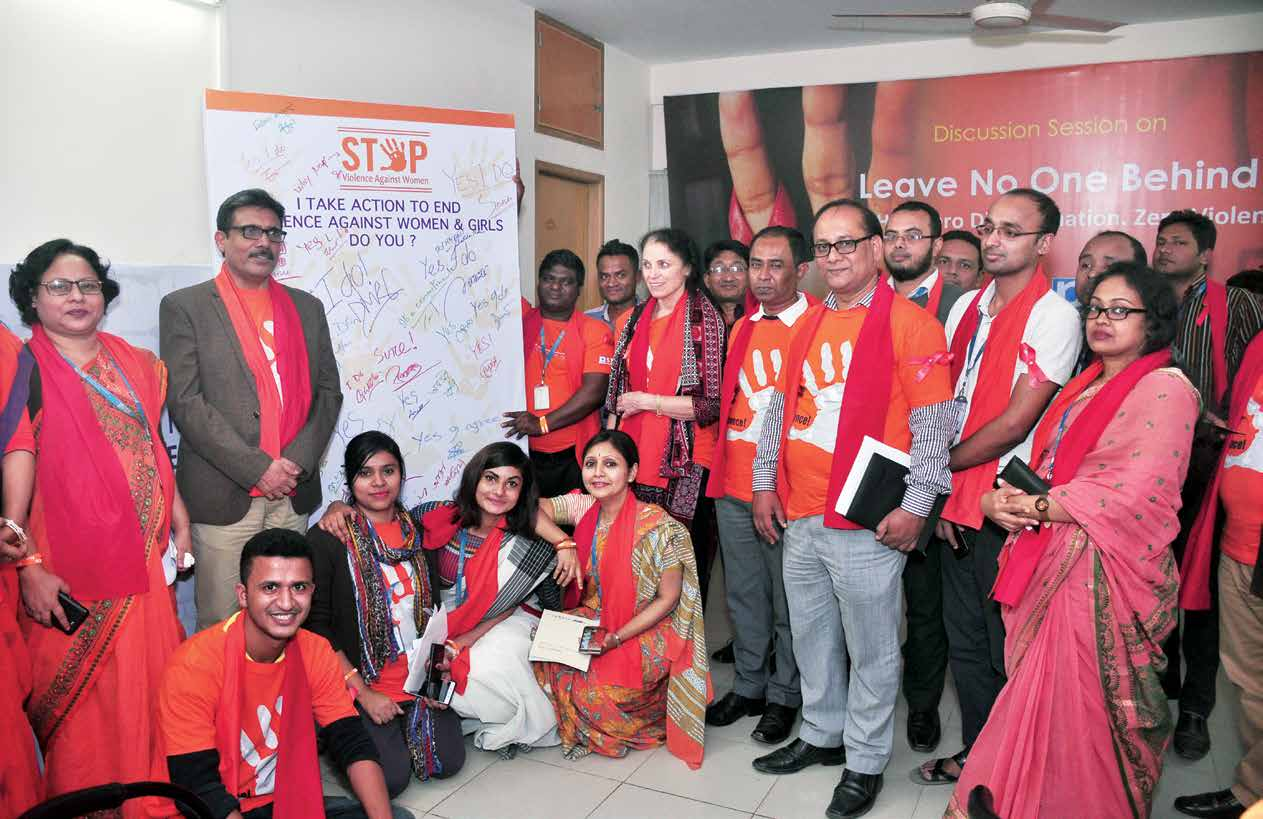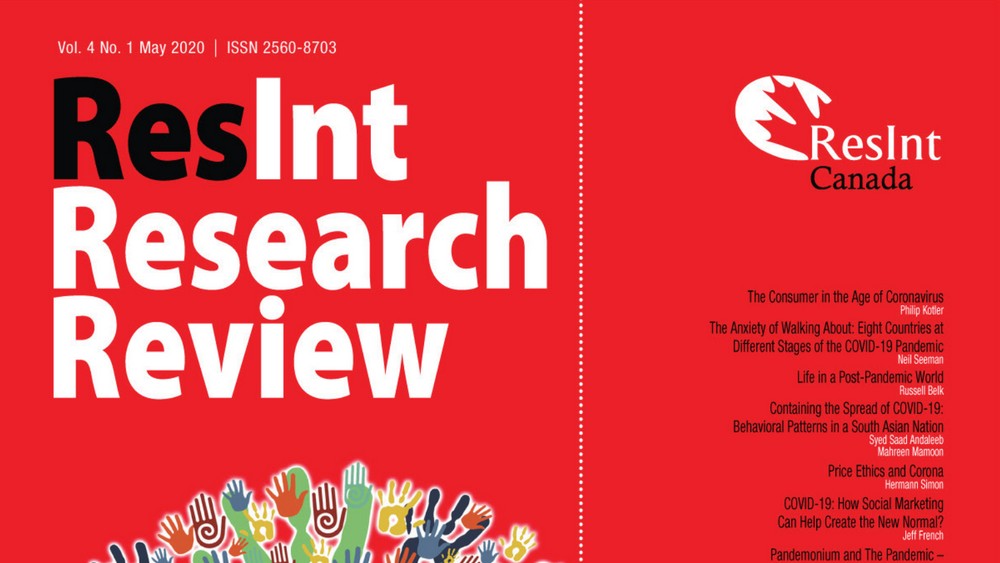Violence against women and girls is one of the most prevalent human rights violations in the world. It knows no social, economic or national boundaries. Worldwide, an estimated one in three women experiences physical or sexual abuse in her lifetime.

Gender-based violence undermines the health, dignity, security and autonomy of its victims, yet it remains shrouded in a culture of silence. Victims of violence can suffer sexual and reproductive health consequences, including forced and unwanted pregnancies, unsafe abortions, traumatic fistula, sexually transmitted infections including HIV, and even death.
Bangladesh scenario is not different from the global scenario. The latest survey by the Bangladesh Bureau of Statistics in collaboration with the United Nations Population Fund published in 2014 mentioned only 8 per cent of women said they were never abused at home. About 77 per cent of respondents said they were abused in the previous year, and one in three victims did not seek hospital treatment for their injuries.
The findings continues to mention that about 87 per cent of Bangladeshi married women are abused by their husband, which came from a sample survey among 12,600 women. The survey found that domestic violence is present in most Bangladeshi households. The data and incidences were of the previous year of the survey, It was also mentioned that 50 per cent of the violated women had sustained serious injuries, but one in three women refused to go to hospital for fear of retaliation by the husband. Although not as prevalent, the problem also affects Catholic women.
As the findings mentioned in their voices, referring a lady, that “husbands consider us weak, and therefore believe that they have the right to dominate us, even beating us. I am a university graduate and I take care of our two children. But my husband does not listen to me, and if I do not do what he says, he beats me.”
Overall though, violence is correlated to illiteracy and low levels of education among women, the study explained.
According to human rights organization Bangladesh Mahila Parishad (BMP), 5,616 cases of violence against women were recorded in 2012, mostly rapes (904), followed by murders (900), stalking and death as a result of stalking (662); dowry-related murders (558), and suicide (435).
Another study finds gender-based violence in Bangladesh goes unreported to police. Whatever we learn that’s just the pick of iceberg, the intensity of the problem is much bigger. It is deeply rooted to our patriarchal mentality and perception of our citizens that men are a bit higher authority.
In this circumstance, many organizations have been working to further gender equality and women’s empowerment, and to address the physical and emotional consequences of gender-based violence. The programs offer psychosocial assistance, medical treatment and rape kits to survivors, and promote the right of all women and girls to live free of violence and abuse.
In this purview, an international campaign started back in 1991 to challenge violence against women and girls which is known as 16 Days of Activism against Gender-Based Violence (GBV). The campaign runs every year from 25 November, the International Day for the Elimination of Violence against Women, to 10 December, Human Rights Day. This activism was first by the Women’s Global Leadership Institute, held by the Center for Women’s Global Leadership (CWGL) at Rutgers University.
From the very beginning of this activism, Bangladesh is very active to make the campaign successful with different theme as it is prescribed by the United Nations – ’16 Days Activism’. The human rights based organizations, particularly some of the women-led and women organizations took the front row in this campaign but United Nations agencies in Bangladesh along with several bi-lateral and multi-lateral development partners are also joining hands to support this activism.
Every year, the 16 Days of Activism Against Gender-Based Violence Campaign either introduces a new theme, or continues an old one. The theme focuses on one particular area of gender inequality and works to bring attention to these issues and make changes that will have an impact. So far since the inception of the campaign, the themes taken and actions followed were detailing how participants can get involved and campaign in order to make a change.
The first campaign theme in 1991 was entitled “Violence Against Women Violates Human Rights”. The theme was used again in 1992. [5]
In 1993, the third campaign’s second theme was Democracy in the Family, Democracy of Families, and Democracy for Every Body.
The 1994 theme brought back the first theme, but with a minor change. It was entitled Awareness, Accountability, and Action: Violence Against Women Violates Human Rights.
The 1995 theme, Vienna, Cairo, Copenhagen, and Beijing: Bringing Women’s Human Rights Home, focused on four major conferences, including the Fourth World Conference on Women in Beijing (September, 1995), which was “the third major UN conference since the World Conference on Human Rights in Vienna (1993),” and “…follows the International Conference on Population and Development (Cairo, 1994), and the World Summit on Social Development (Copenhagen, 1995). “
As a follow up to the 1995 themes and major conferences within recent years, the 1996 theme was Bringing Women’s Human Rights Home: Realizing Our Visions.
The 1997 Campaign was Demand Human Rights in the Home and the World, which was working towards the 1998 Global Campaign for Women’s Human Rights.
The theme for the campaign in 1998 was Building a Culture of Respect for Human Rights.
The 1999 campaign theme was entitled Fulfilling the Promise of Freedom from Violence.
In 2000, the theme was Celebrating the 10thAnniversary of the Campaign, in which participants would review the accomplishments of the last 10 years of the campaign and build upon those achievements. The Center also asked participants to send in documentation of their work in order to initiate a project to document the efforts of the campaign.
The campaign theme in 2001 was Racism and Sexism: No More Violence. The campaign theme in 2002 was Creating a Culture that Says No to Violence Against Women The 2003 campaign, Violence Against Women Violates Human Rights: Maintaining the Momentum Ten Years After Vienna (1993-2003), was focused on reviewing changes that had occurred in the 10 years since the Vienna Declaration that was a result of the World Conference on Human Rights in Vienna (1993) and the UN General Assembly›s adoption of the Declaration on the Elimination of Violence Against Women (2003).
The 2004-2005 campaign was entitled For the Health of Women, for the Health of the World:
No More Violence, particularly focused on the “intersection of violence against women and the HIV/AIDS pandemic.”
The 2006 campaign, Celebrate 16 Years of 16 Days: Advance Human Rights <–> End Violence Against Women, celebrated not only those who had contributed to the campaign, but those who had given their lives or suffered violence during their fight against gender inequality.
The 2007 campaign was entitled Demanding Implementation, Challenging Obstacles: End Violence Against Women. The 2008 campaign title was Human Rights for Women <–> Human Rights for All: UDHR60, which celebrated the 60thanniversary of the Universal Declaration of Human Rights.
The 2009 theme was Commit, Act, Demand: We CAN End Violence Against Women!
The theme in 2010 marked the 20th year of the 16 Days of Activism Against Gender Violence Campaign, and was entitled Structures of Violence: Defining the Intersections of Militarism and Violence Against Women.
From 2011 to 2014, the theme of the campaign was From Peace in the Home to Peace in the World: Let’s Challenge Militarism and End Violence Against Women!
In 2015 and 2016, the theme of the campaign was From Peace in the Home to Peace in the World: Make Education Safe for All!
The 2017 16 Days of Activism Campaign places a stronger emphasis than in recent years on the human rights framework. As always, the 2017 Campaign includes suggestions for awarenessraising activities, including attracting attention and generating public support. This year however, this 16 Days Campaign Actions also includes suggestions for advocacy focused on institutional, legal, and policy change, i.e. for effective laws, policies and institutions that effectively prevent and address GBV in education. This reflects a refocused and renewed emphasis by the Center for Women’s Global Leadership (CWGL) on using the human rights framework to campaigning not only to raise awareness about gender-based violence, but also to eradicate it once and for all.
Aligning with the SDGs, the theme for 2017 to observe the campaign is ‘Leave No One Behind: End Violence Against Women and Girls’.
As was mentioned another study supported by KOICA, Korea’s development agency, it was found that many preferred to work with informal institutions, such as Shalish or through the Union Parishad, and when they did report or seek redress from formal mechanisms, victims preferred to go to the village courts.
The study was conducted under a three-year project run by the UNDP Bangladesh, and Korea’s development agency, KOICA.
The findings, suggested and highlighted the need to also address stigma, stereotypes and other social norms “to demystify gender based violence as a personal or domestic issue”. The role of men and boys, including how they are socialized in terms of masculinity and violence, plays a crucial role in preventing sexual and gender-based violence, it said.
Having mentioned all these, we also would like to conclude by saying, Bangladesh has been progressing towards achieving the goal of ‘Zero tolerance to GBV’ but still we have miles to go to reach the destination. Recent news about the ‘Gender Gap Index’ says, Bangladesh has topped the South Asian countries in gender equality for the third consecutive year, ranking 47thamong 144 nations. It has also moved 25 notches up in the Global Gender Gap Report 2017 published by the World Economic Forum (WEF) in the last month.

We do have still the news of violence everyday including rape, molestation, bullying to show our patriarchal mentality. Until and unless we change our attitude and behavior towards our female counterparts it would be hard to reach the expected goals. Let us all work together towards ending gender based violence!
The article was written for Projomo Kotha on the year 2017 by Dr. Noor Mohammad.



